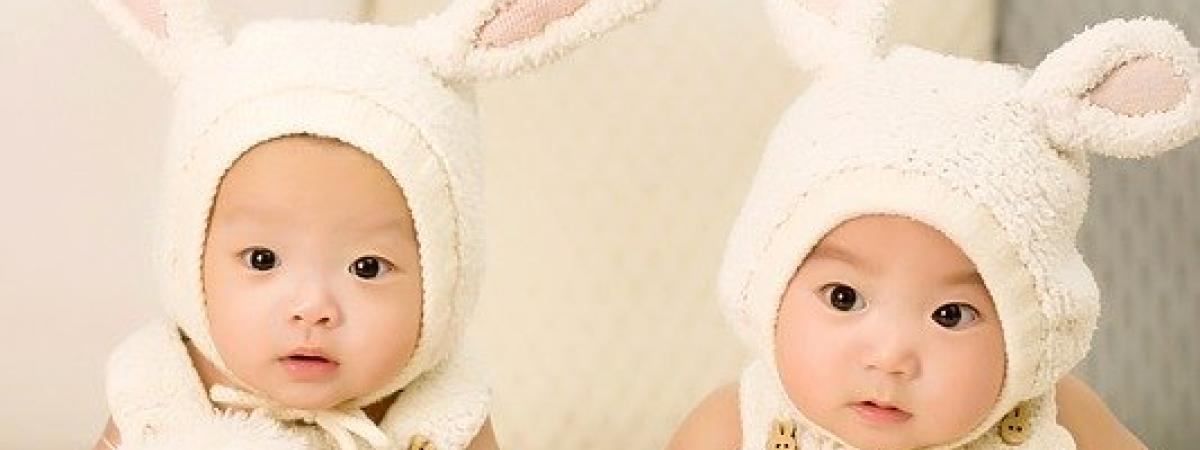What can twins teach us about science?

With 15,000 twins signed up, TwinsUK is the country’s biggest registry of twins. Scientists have been studying this group since 1992 to understand more about the genetic and environmental causes of disease (the “nature versus nurture” debate). In 2019, TwinsUK collected 103 litres of blood, 27 litres of urine and over 1 litre of saliva; they processed 2,249 stool samples and extracted DNA from 3,010 samples. Health writer and twin Helen Cowan talked to TwinsUK to find out more about their work.
Why are twins studied in science?
Twins are unique because they share the same childhood environment from before they are born, and they also share some or all of the genes that could make them more or less likely to develop diseases.
Identical twins share the same genes; non-identical twins share about half their genes. All twins are important to medical research. If a condition is largely caused by particular genes, we would expect that in a high proportion of cases both twins in an identical twin pair would have it, but that this would not always be the case for the non-identical twins. By looking at how often twins share an illness we can establish whether genes are important for that condition; analysis of the DNA can help identify exactly which genes are involved.
TwinUK’s Professor Frances Williams and her team, for example, have identified 44 new genes linked to age-related hearing loss, in a study of over 250,000 volunteers which included participants from TwinsUK.
Tell us about the TwinsUK project
Professor Tim Spector founded TwinsUK in 1992 and it is now the UK’s largest adult twin registry. It has the most detailed clinical information of any twins’ registry in the world. Starting out by investigating osteoporosis and other rheumatologic diseases in a few hundred identical twins, their research now covers everything from ageing to diabetes, obesity and osteoarthritis and includes over 15,000 twins.
Twins attend clinic visits at St Thomas’ Hospital in London every four years, where they take part in various tests to measure their physical and cognitive health, and provide samples such as urine, stool and saliva. In between visits, the twins also complete surveys and questionnaires about their health. Last year TwinsUK saw 663 twins in the clinic and received more than 8,000 completed online questionnaires.
What are some of the latest findings?
1. TwinsUK researchers found that genes play an important part in the number of moles that you have and where they are on your body. For women the number of moles on their legs is 70 per cent due to genes, compared to 26 per cent for the trunk.
Moles are a known risk factor for skin cancer and so this finding suggests that genetics—as well as sun exposure—may increase the likelihood of developing the disease.
2. There are a number of ongoing studies into gut bacteria and their impact on our health. One of these studies found that gut bacteria affect the accumulation of visceral fat, which is the fat around our midriff that has been linked to higher rates of illness. Gut bacteria could then be a prime target in helping you to manage your weight.
3. Researchers at TwinsUK found an association between drinking red wine and an increase in gut bacteria diversity, but no association was found with other types of alcohol. Previous research suggests that a more varied community of bacteria in your gut is a marker of better health.
We know that red wine contains molecules called “polyphenols”, which are also present in fruit and vegetables and act as fuel for gut microbes. These could be providing a health benefit. However, we don’t know for sure if the red wine is causing the increase in gut bacteria diversity, and we’ll need to do more research—but if you have to choose one alcoholic drink, red wine is the one to choose.
4. Thousands of twins at TwinsUK have signed up for a symptom tracking app aiming to slow the spread of coronavirus. The health data already collected at TwinsUK and the committed participants provide a unique position to research this condition and join in the fight against COVID-19.
